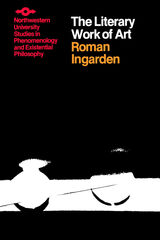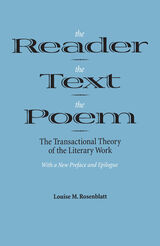
The Literary Word of Art establishes the groundwork for a philosophy of literature, i.e., an ontology in terms of which the basic general structure of all lliterary works can be determined. This "essential anatomy" makes basic tools and concepts available for rigorous and subtle aesthetic analysis.

Louise M. Rosenblatt’s award-winning work continues increasingly to be read in a wide range of academic fields—literary criticism, reading theory, aesthetics, composition, rhetoric, speech communication, and education. Her view of the reading transaction as a unique event involving reader and text at a particular time under particular circumstances rules out the dualistic emphasis of other theories on either the reader or the text as separate and static entities. The transactional concept accounts for the importance of factors such as gender, ethnicity, culture, and socioeconomic context. Essential reading for the specialist, this book is also well suited for courses in criticism, critical theory, rhetoric, and aesthetics.
Starting from the same nonfoundationalist premises, Rosenblatt avoids the extreme relativism of postmodern theories derived mainly from Continental sources. A deep understanding of the pragmatism of Dewey, James, and Peirce and of key issues in the social sciences is the basis for a view of language and the reading process that recognizes the potentialities for alternative interpretations and at the same time provides a rationale for the responsible reading of texts.
The book has been praised for its lucid explanation of the multidimensional character of the reading process—evoking, interpreting, and evaluating the work. The nonliterary (efferent) and the literary (aesthetic) are shown not to be opposites but to represent a continuum of reading behaviors. The author amply illustrates her theoretical points with interpretations of varied texts. The epilogue carries further her critique of rival contemporary theories.

What is the function of literature? Initially framed as a problem toward the end of the eighteenth century, this question has been posed with ever greater insistence throughout the nineteenth and twentieth centuries. During this period, the natural sciences and the human sciences have both staked claims to intellectual and moral authority, while literature—and poetry in particular—has experienced a serious crisis of legitimation. That embarrassment became acute in the 1970s and 1980s when Western literature, moving along various postmodern avenues, seemed to have turned against itself.
In Social Values and Poetic Acts, Jerome J. McGann addresses this predicament. He argues that during the past two centuries literature has turned to certain distinctively modern social practices, that it has undergone what Matthew Arnold termed a “crisis of life.” McGann’s thesis, a radical Left translation of Arnold, gathers the whole of the Western canon into an “antithetical discourse.” He calls for a comprehensive program of rehabilitation of literature, involving a radical reinterpretation of the literary history of the nineteenth and twentieth centuries. He also exhorts the scholarly and writing communities to rededicate themselves to an engaged and contestatory writing, interpretation, and teaching. In the course of the argument, he appropriates postmodernism and deconstruction into socially conscious forms of cultural work.
READERS
Browse our collection.
PUBLISHERS
See BiblioVault's publisher services.
STUDENT SERVICES
Files for college accessibility offices.
UChicago Accessibility Resources
home | accessibility | search | about | contact us
BiblioVault ® 2001 - 2024
The University of Chicago Press









